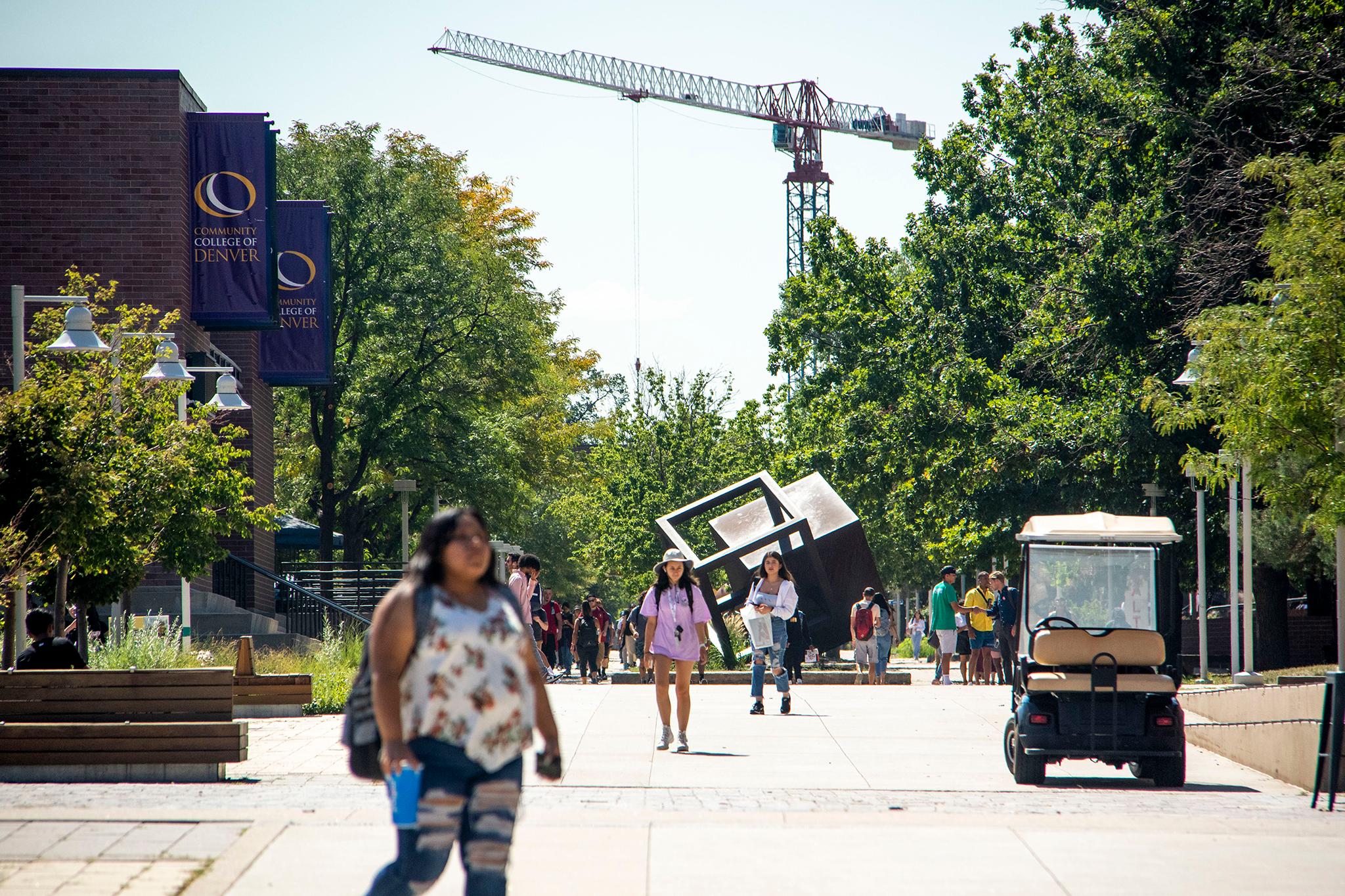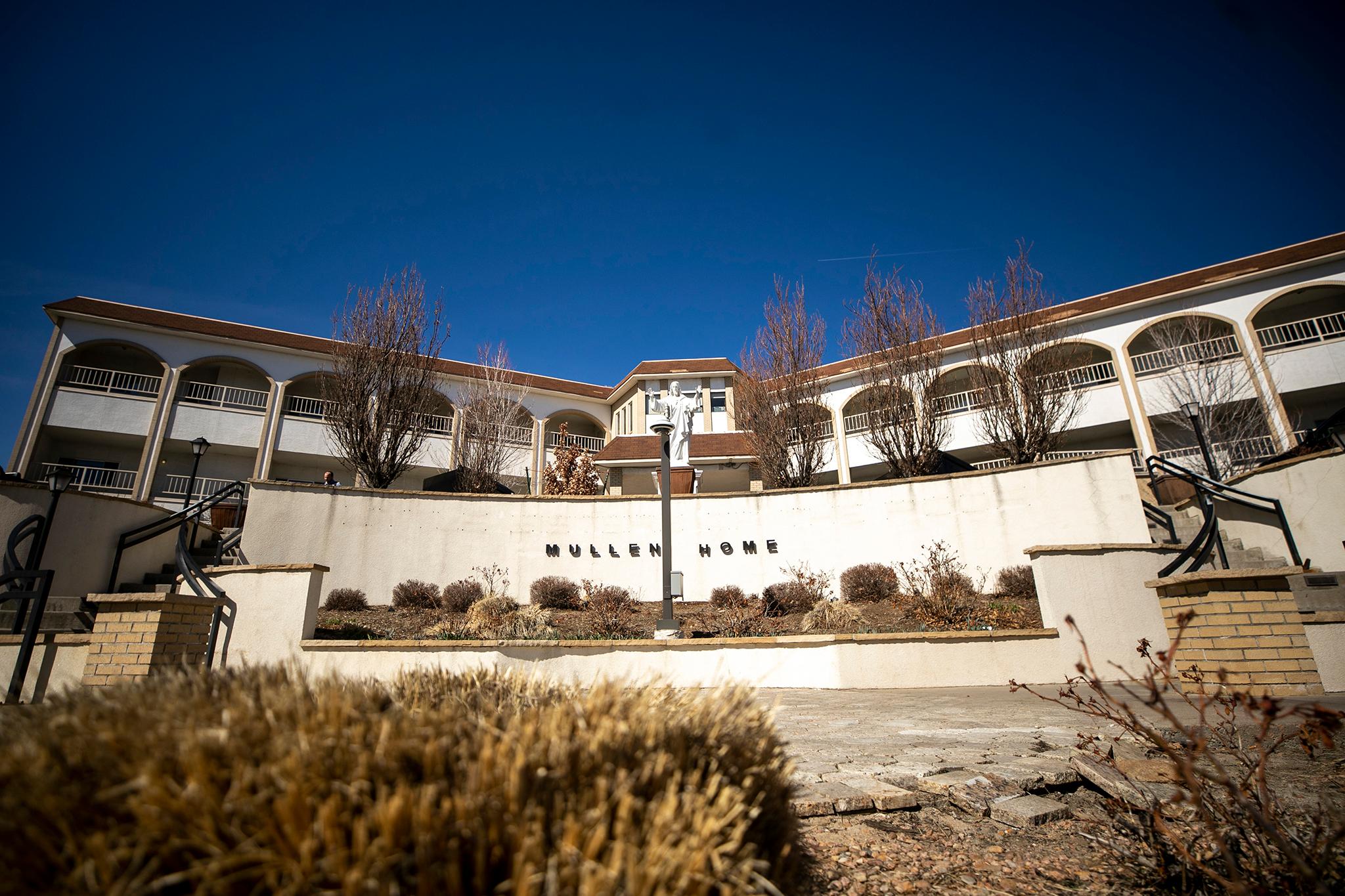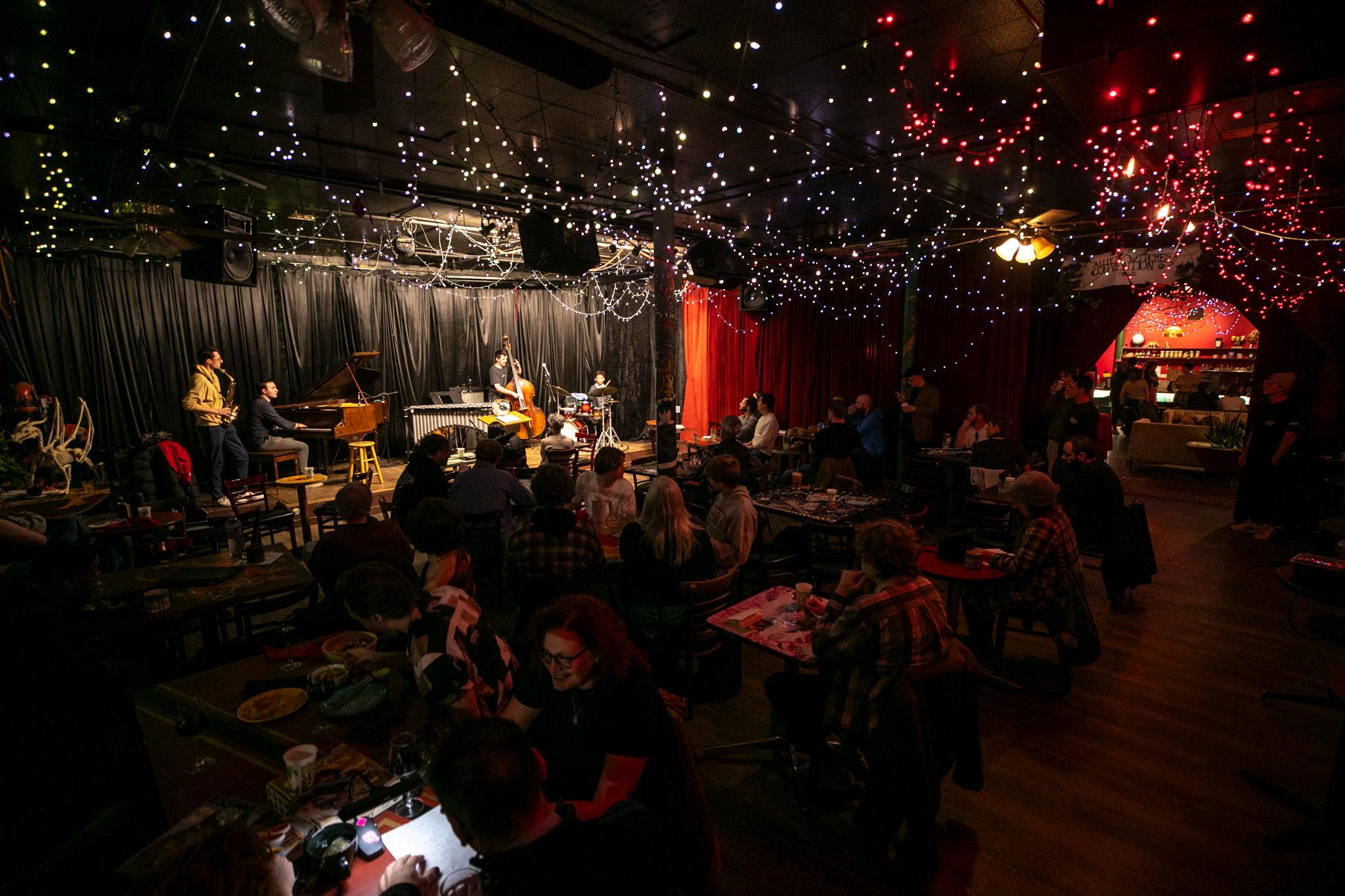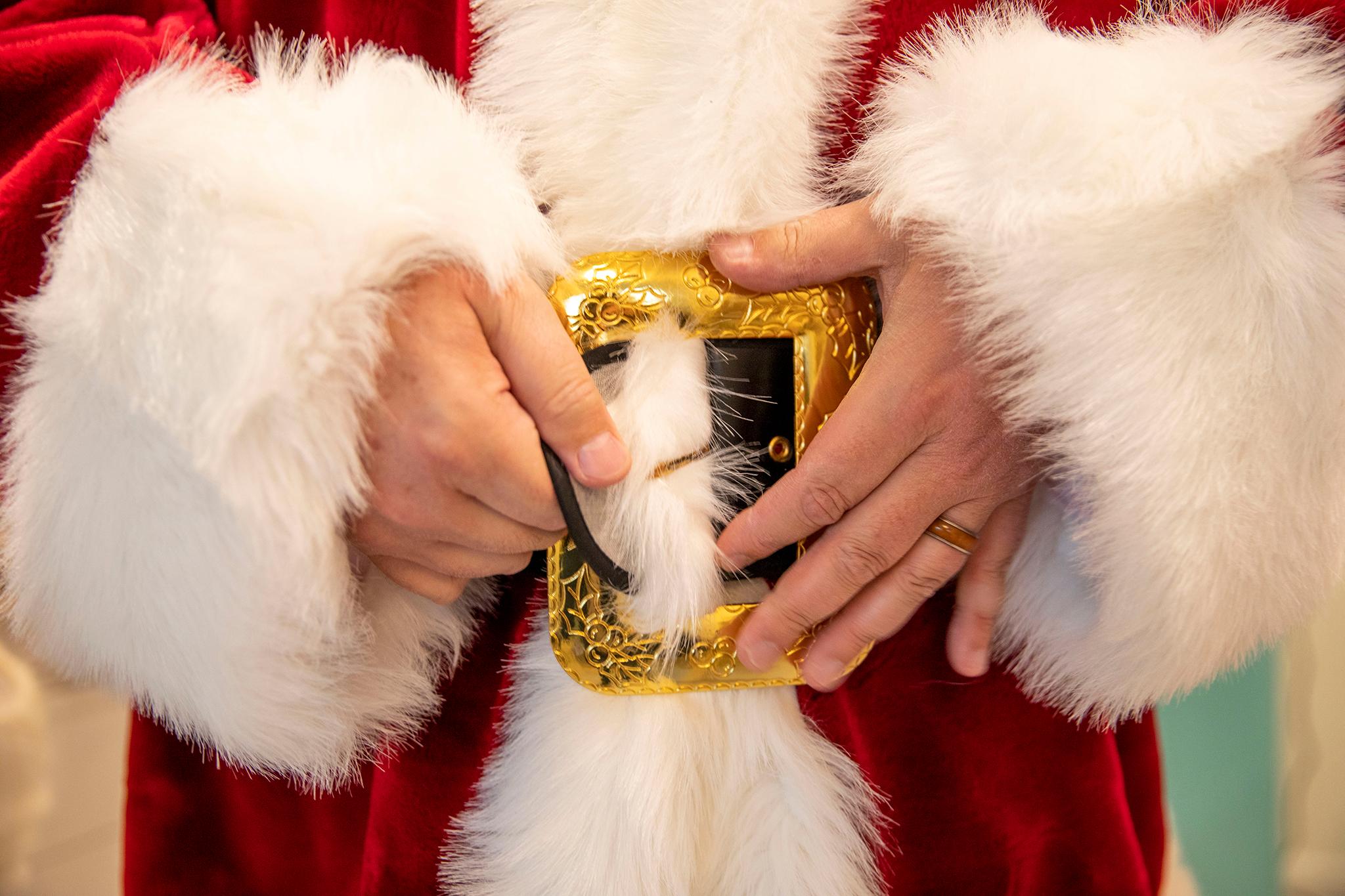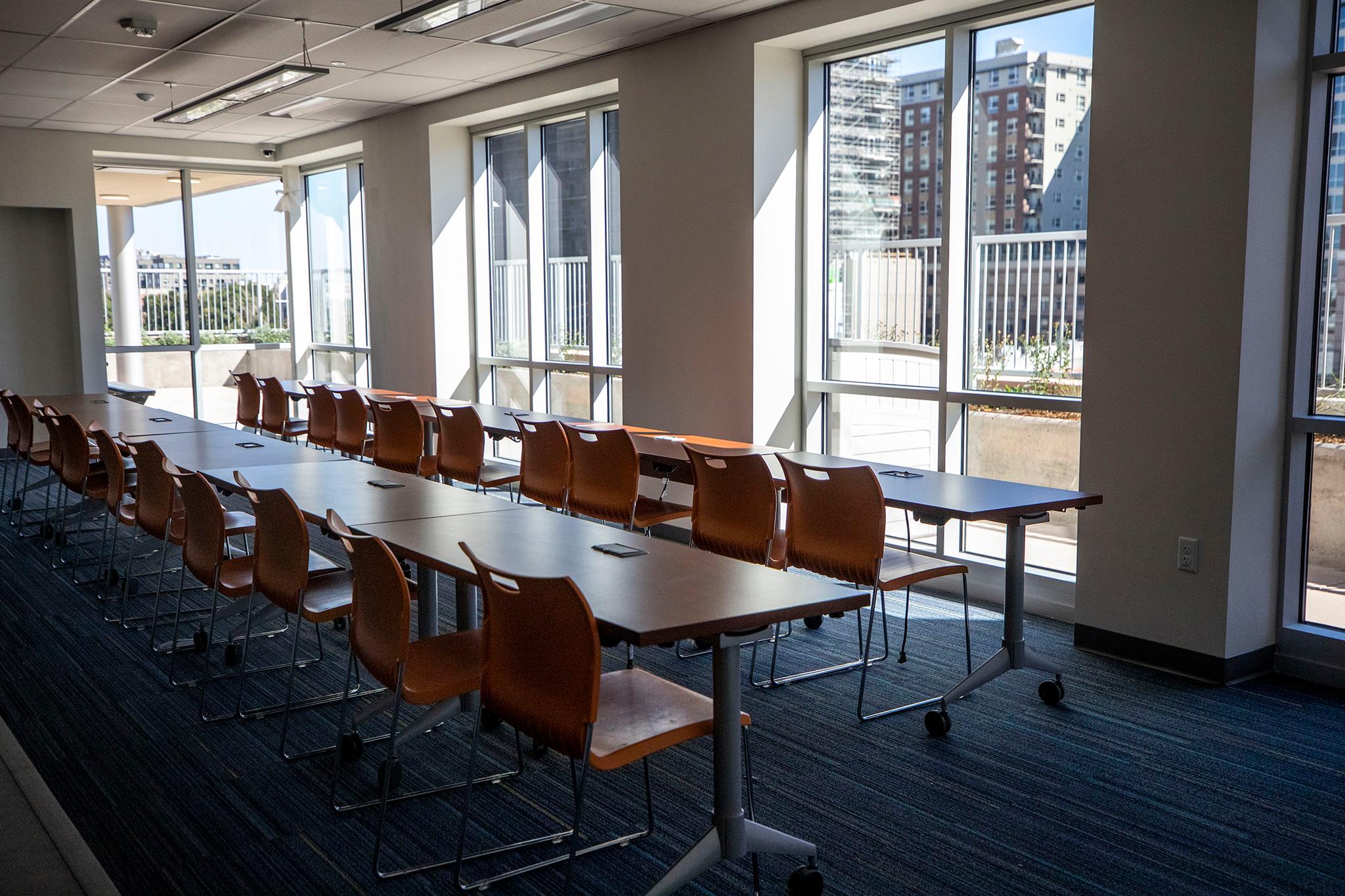In the next few decades, Downtown Denver will expand west of Cherry Creek, the population could nearly double in size -- and big changes could come to the Auraria Campus, home of the University of Colorado Denver, Metropolitan State University of Denver and the Community College of Denver.
First, a quick recap:
Developer Revesco Properties and the city are rechanneling the South Platte River and redeveloping the current Elitch Gardens site into the River Mile, a whole neighborhood with retail, housing and recreation -- and 15,000 residents.
Kroenke Sports and Entertainment has proposed to turn 55 acres of Ball Arena parking lots into its own mixed-use development, including an expansion of Wynkoop Street into what the company has branded "the Sports Mile." The project would fill the gap between Lower Downtown and the River Mile -- with nearly 7,000 residential units, meaning many more than 7,000 residents.
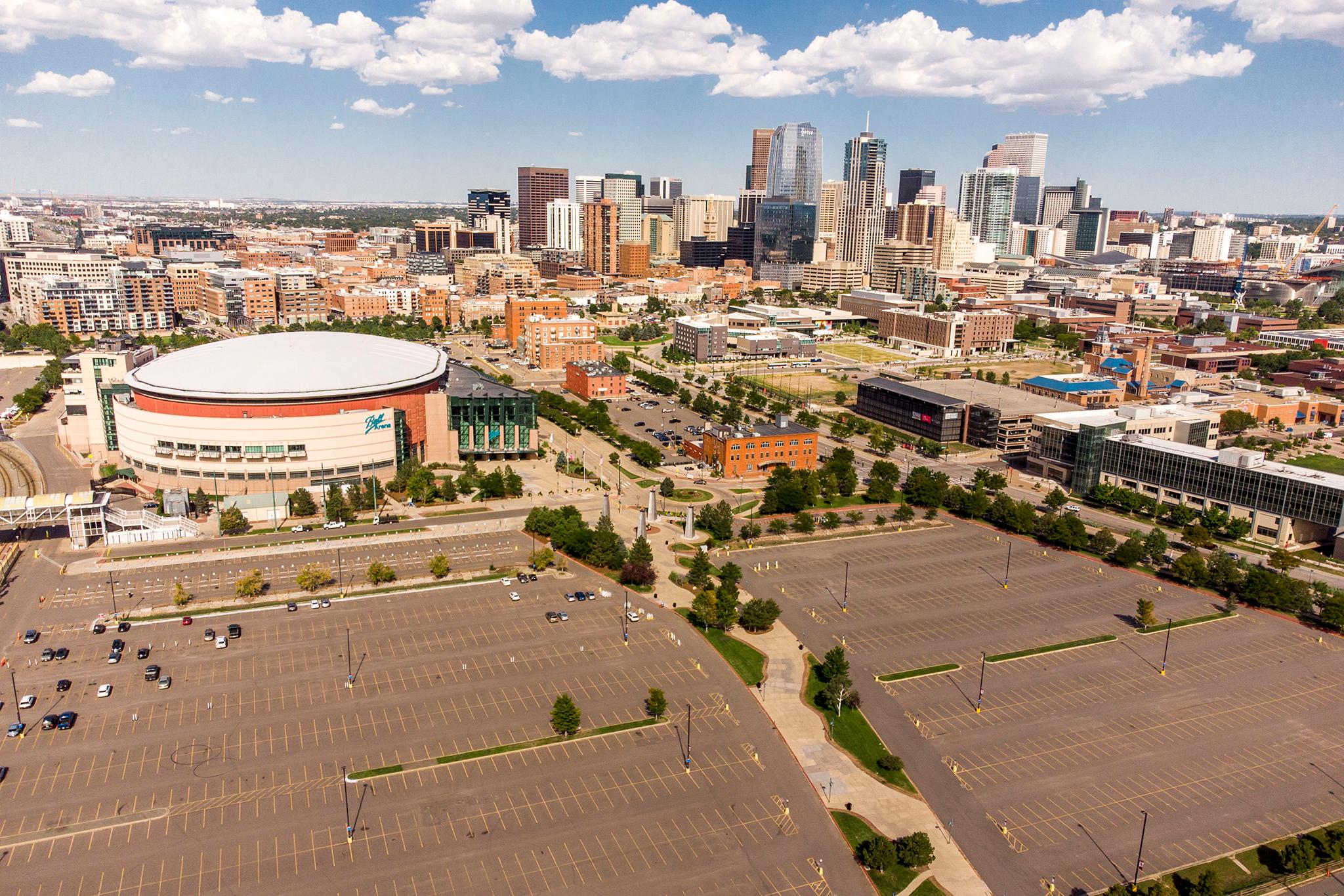
Now, planners from across the country associated with the nonprofit Urban Land Institute, the University of Colorado Denver and the City of Denver are weighing whether and how to redevelop the Auraria Campus.
At a July panel, they discussed creating a massive, 150-acre mixed-use development on the campus, a downtown hub for educating people of all ages within a thriving urban environment.
Also in their sights for a radical reworking: Speer Boulevard and Cherry Creek at the border of the current downtown.
If the planners' dreams come true, the colleges and universities would stay -- and possibly profit from the redevelopment of the real estate. More childcare and elementary school options would sprinkle the area. Developers would build more housing, office space for tech companies, research facilities, retail, cultural venues, and parks.

Many of the main roads through the campus would be turned into tree-lined main streets that prioritize biking and walking. Maximum parking allowances would prevent the area from being dominated by cars, like so much of downtown currently is.
The goal, as Yvonne Yeung, the head of urban design in Brampton, Ontario, put it: "The broader strategy is using this to kickstart a series of capital investment projects that can put Denver on the global stage."
Students and faculty would be involved along the way.
At least, those are the recommendations...

Where would all this development on the Auraria Campus happen? Up!
There are six blocks of parking lots that are near the light rail that Yeung noted are ready to be developed into what the planners described as a "vertical campus."
The buildings would be layered like three-tier cakes, the Urban Land Institute's planners explained. In one example cited in their presentation, there would be 330-bed residences in the top of a building; a digital fabrication lab, research facilities and administration offices on the middle level; and multiple academic departments on the bottom.
The current buildings that stayed would be renovated to face Speer Boulevard, so they could be incorporated into a downtown that did no longer ended at Cherry Creek but continued west. The Denver Performing Arts Complex would also open up access to Speer Boulevard.
The schools at Auraria take pride in being part of an urban campus, and the planners proposing this argue that their vision could make that more of a reality.

This wouldn't be the first time the land was occupied by a mixed-use community.
Auraria was founded as its own municipality along Cherry Creek in 1860 and eventually was annexed by Denver and became a thriving neighborhood with homes and businesses.
To build the campus, the City of Denver destroyed that community and displaced 250 businesses and 330 households in 1969. While residents were paid for their homes, the uprooting of the neighborhood disrupted the lives of many individuals.
The campus has been wrangling with the legacy of destroying the community since it was founded. In late 2021, the Auraria Higher Education Center announced it would be offering free tuition to all three schools on the campus to descendants of residents displaced in the late '60s and early '70s.
If mixed-use development comes to the campus, the planners recommend honoring the memory of those who lived there -- and also that of the indigenous people who once made a home there -- through storytelling projects and a Cherry Creek Cultural Corridor.
Whether those communities would receive direct economic benefits from any potential developments has not been fully discussed.

Both Auraria Parkway and Speer Boulevard currently make accessing the Auraria Campus from downtown difficult for pedestrians and bikers.
"It is the determined pedestrian who makes the crossing," said Ross Tilghman, a Seattle-based transportation consultant. "It's a long distance. It takes a long time. Partly that's the corridor. Just getting across the street takes long enough. But then, walking that nearly 600 feet, we're talking almost two city blocks just to get from one building on the east side to the next building on the west side.
"That's a long way you have to endure high traffic volumes, the speed, the noise," he continued. "And there's no weather protection. Whether you're getting baked by the sun or chilled by the winter winds, it's a tough place to be as a pedestrian.
"In short, Speer is incompatible with a successful, walkable downtown, due to the traffic," Tilghman said.

The planners with the Urban Land Institute imagine adding bike lanes and green space to Speer Boulevard, cutting down the lanes available to cars, rerouting Cherry Creek to the east of the boulevard, and radically reducing the speed limit from its current 35 miles per hour.
While Speer is often viewed as a historic landmark, part of former Mayor Robert Speer's City Beautiful movement, the planners contend that it has already been radically redesigned from its original form and that revisiting how it operates would make the city a more desirable place to live.
"The intent of City Beautiful and also the intent of the parkway is about creating an experience of moving along as a place of recreation, as a place of leisure," Yeung said. "So we apply that to the 21st century. How do we move? It's focusing on walking, cycling and jogging. That's from that appreciation standpoint."

She said Speer Boulevard has the potential of being something akin to Paris's Champs-Élysées, a cultural destination.
"In other words, it's not a parkway for moving vehicles," she said. "Instead, it's a 21st Century urban promenade where people would gather for parades or festivals."
In interviewing residents, the planners heard many say Cherry Creek could serve as a backyard to downtown.
The Urban Land Institute panelists took that a step further. They view Cherry Creek as a potential Central Park, like the one in New York. Sure, it's on the border now. But after River Mile and the Ball Arena development arrive and Auraria might be redeveloped, the creek will run through the center of the future downtown. Its banks won't be a border but rather a central green space, a location Denverites travel to for fun.
The creek, as they see it, is currently underused. The bike lanes are congested. Other trail users are too often pushed off the trails or afraid to risk venturing on them. And there are significant lighting and design problems.
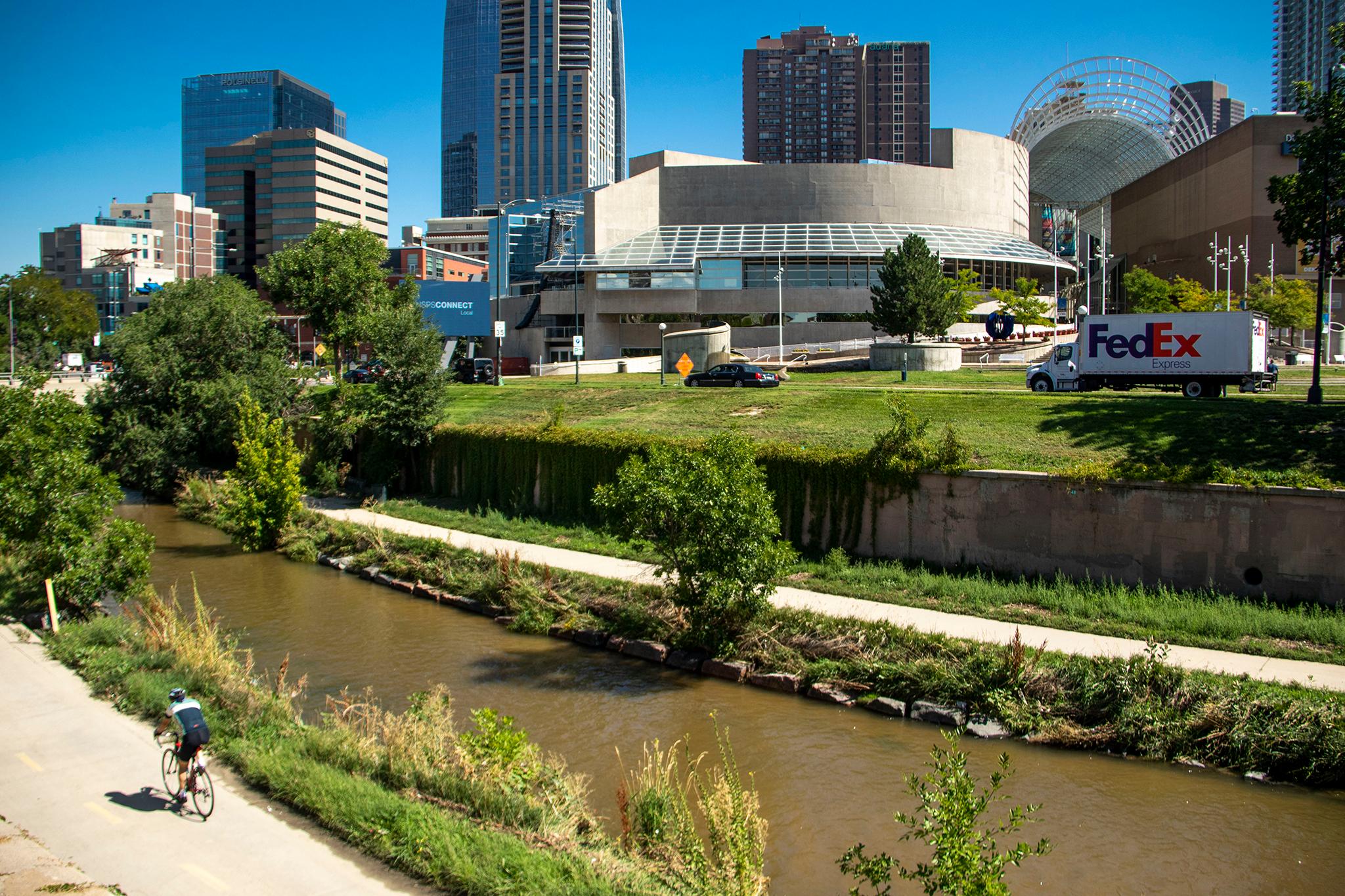
The creek should be used as a draw, they say, where people want to go, not just move through. And it should be accessible to everybody -- not solely cyclists.
Shrinking Speer Boulevard would open up additional land to expand the city's tree canopy, housing projects, and other creative uses and help keep Denver cool -- both in terms of temperature and culture. (In fact, someone once made an argument a bit like that on this very website.)

How likely is all this to happen?
The Urban Land Institute is an influential nonprofit that has boosted many of Denver's rising projects. The event, where panelists presented this vision, was geared toward the City of Denver. Representatives from CU Denver, the Downtown Denver Partnership, the Auraria Higher Education Center, members of Denver's Planning Board and other developers and advocates were also involved in the discussion.
Laura Aldrete, head of Denver's Community Planning and Development, attended the meeting and said the conversation over the redevelopment has been in the works for the past three years.
Next steps? Said Aldrete: "Are there some low-hanging fruit that each of us can take on, that falls within our bailiwick, that moves our mission forward. And then also begin doing some of that long-range planning to begin testing these elements."
She's interested in seeing what potential futures can be tried out before the city and developers gamble millions on renovations of Speer and the campus. Examples cited by planners include temporarily cutting back car access on Speer and creating a temporary bike lane and finding other infrastructure to naturally slow traffic.
Success, she said, will require participation from multiple partners, including the campus, local businesses, the city and the Downtown Denver Partnership.
Said Aldrete: "It is going to be the stakeholders around Speer that are going to have to come together, in addition to the city, to move this forward."
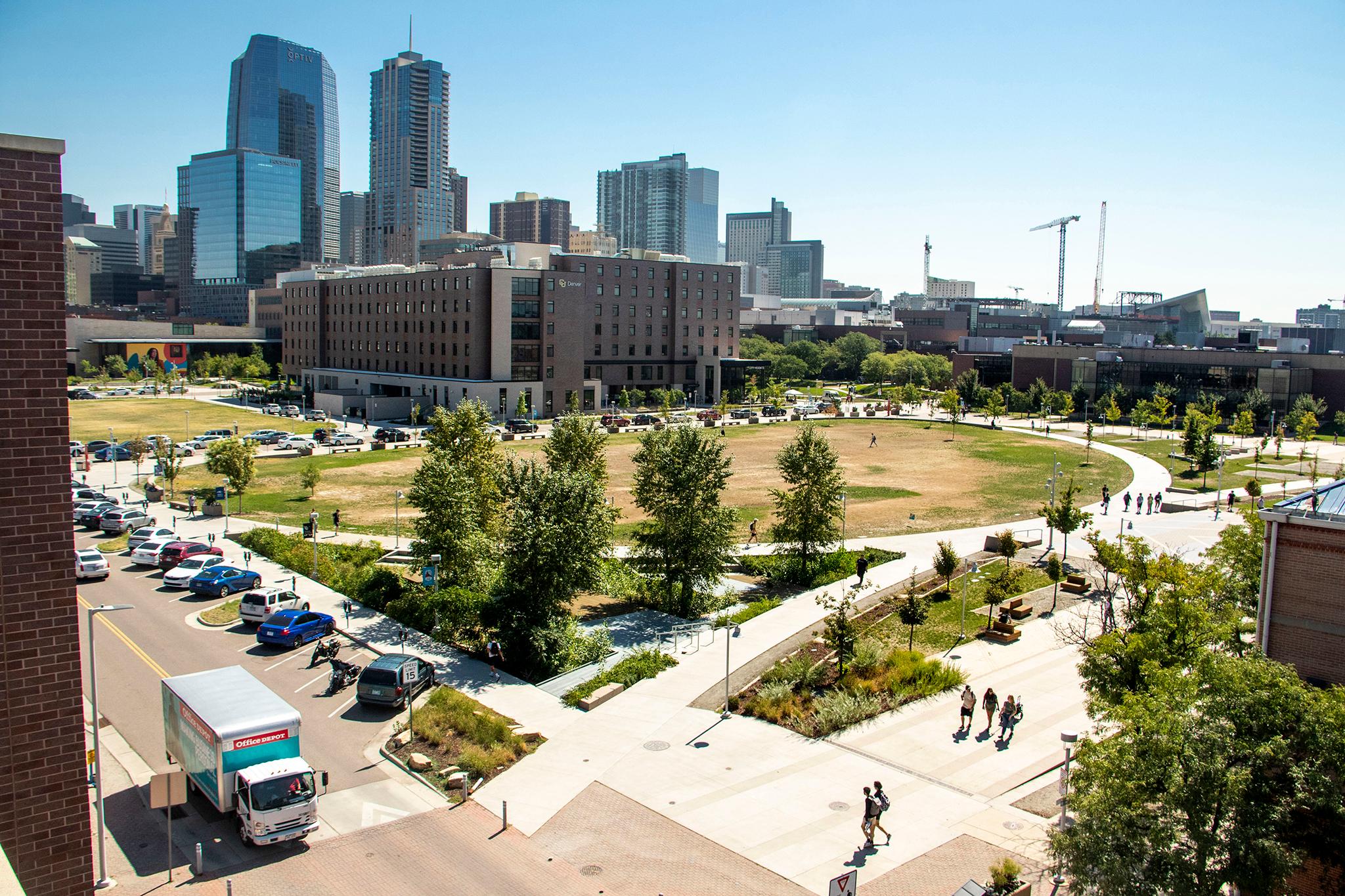
Colleen Walker, CEO of the Auraria Higher Education Center, said her organization has a lot to consider regarding the proposal.
"The Speer Reimagined initiative is of utmost importance and requires thorough analysis and engagement, both from Auraria and other stakeholders," she wrote Denverite. "I'm initially impressed with the recommendations put forth by ULI and, while we still have a lot to consider and discuss, we're pleased with the partnership and the direction we're heading in together. The ULI plan prioritizes affordable housing, transit-oriented development, mixed-use, and industry partners, all of which intersect with AHEC's strategic plan."
The process is still in its earliest stages. Whatever redevelopment might happen, she wants it to benefit all three Auraria institutions.
"As we look to enhance the campus in collaboration with Community College of Denver, Metropolitan State University of Denver, and University of Colorado Denver, our focus will always be to better support students, faculty, and staff as they work, play, live, and learn on the Auraria Campus."

